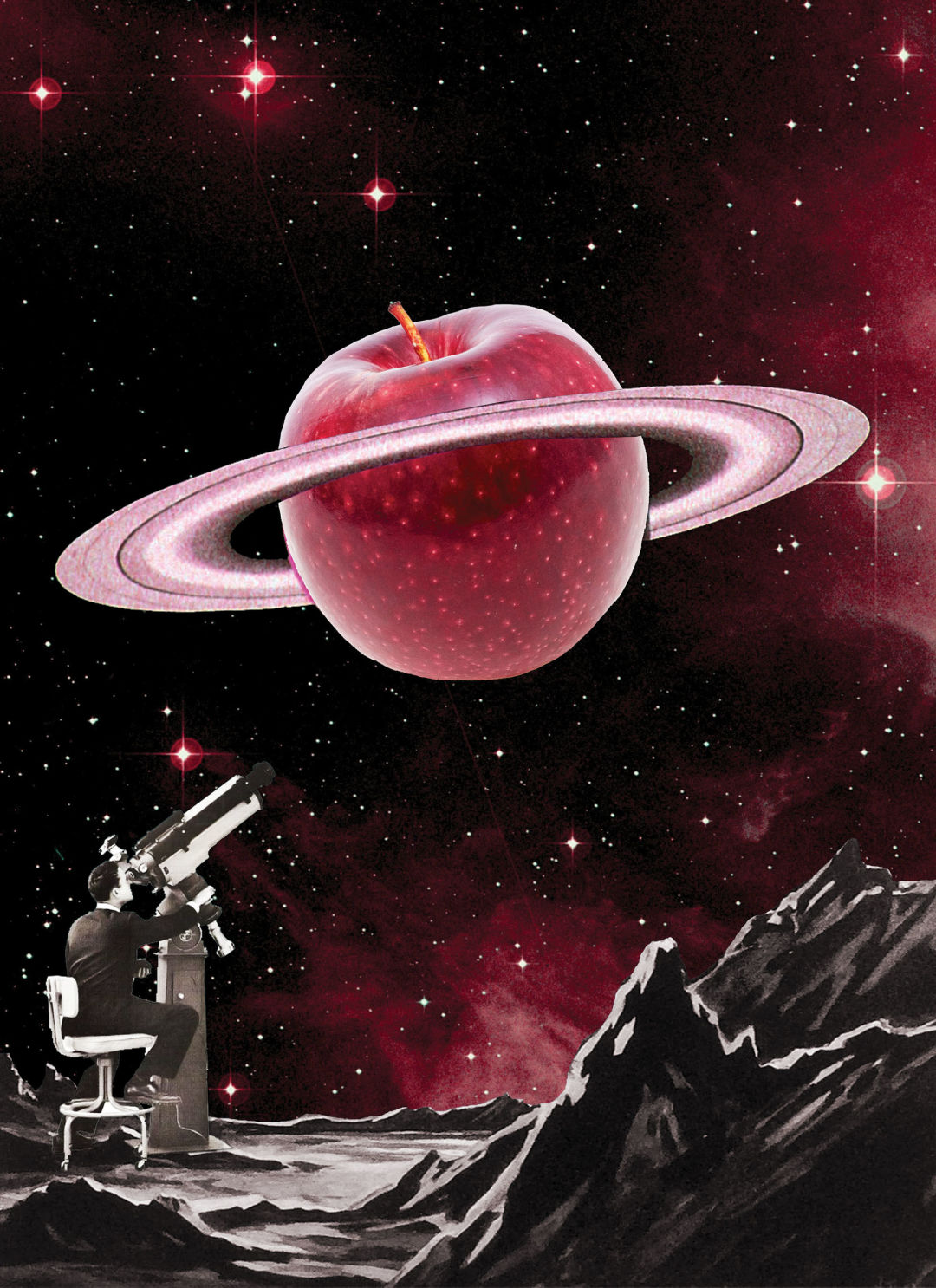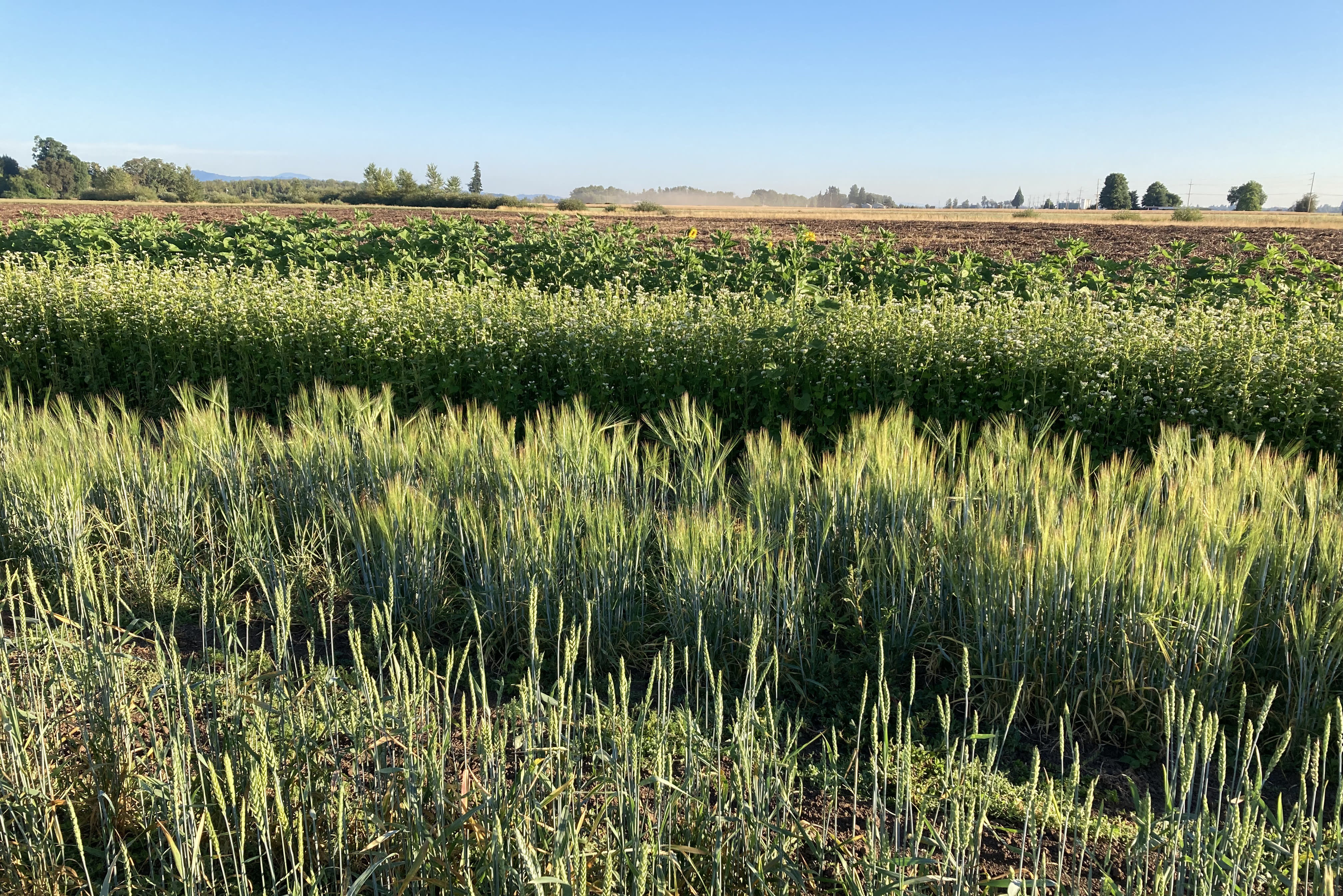Prepare to Pay for the New Prestige Apple, the Cosmic Crisp

Image: Eugenia Loli
This winter, you may be pulled into a new orbit in the produce aisle, gravitating inexorably to the Cosmic Crisp. Grown exclusively in Washington, this new apple variety promises a flavor to outshine the lauded Honeycrisp. Its flesh browns slowly—hello, school lunches! And this apple’s ambitions are, well, galactic: with a $10 million marketing budget behind its projected December launch and more than 12 million trees already in the ground, this will be the biggest branded apple launch ever.
There’s even a campaign slogan: “Imagine the possibilities.”
The Cosmic’s backers include the state of Washington and the marketing people who brought you the Pink Lady. If they succeed, Oregon farmers and grocers will feel a disturbance in market forces, one way or another.
“Everyone from the rootstock growers all the way to the retail stores are taking a huge gamble that the Cosmic Crisp will be the next Honeycrisp, the apple of the future,” says Josh Alsberg, owner of acclaimed Portland microgrocer Rubinette Produce.
This new hope began life as test variety WA 38 in Wenatchee. Scientists at Washington State University’s Tree Fruit Research and Extension Center crossbred the Honeycrisp—popular, but hard to grow—and the durable Enterprise. They saw potential for a massive hit. Twenty years of development and planning later, the rebranded Cosmic Crisp wields an influencer campaign featuring an ex-astronaut, a “pie artist,” and, of course, a lifestyle blogger. It is said to be crisp and juicy, sweet and tart, with a grocer-friendly long shelf life.
What happens at first bite? Historically, apple trends change slowly. Ye olde Red Delicious reigned as the nation’s most popular variety for half a century, finally abdicating to Gala last year. And yet the Cosmic Crisp could hit the scene like a meteor. In 2017, the first year the variety became available to plant, farmers planted 700,000 trees, followed by 6 million in 2018, and 5 million more in 2019.
A recognizable brand can boost farmers’ profits. “The return growers get on food is getting tighter and tighter,” says Jeff Fairchild, a buyer for New Seasons. “Labor costs are up, fuel costs are up. But the return to growers hasn’t changed that much over the years.”
Trademarked fruit varieties are becoming more common. Think of the mandarins known as Halos and Cuties, or Cotton Candy and Moon Drop grapes. Despite Honeycrisp’s demanding rep among farmers, orchards keep planting more because consumers are willing to pay a premium for its juicy snap (as much as $3 per pound of late).
For now, the patented and proprietary Cosmic Crisp can be grown only in Washington. But Oregon consumers will be buying, and apple growers from Hood River to Milton-Freewater will be watching. What does this flashy arrival mean for the old-time, artisan varieties that food-conscious Portlanders love? Nobody pays millions to promote centuries-old Ashmead’s Kernel, or the striking, red-fleshed Mountain Rose. But Alsberg and Fairchild agree that consumers have an appetite for both big-name produce and some lesser-known varieties that thrive in our fruit-blessed region.
And when it comes down to it, says Alsberg, anything that gets people excited about fresh produce is a good thing. “If kids choose to eat a Cosmic Crisp apple over a Milky Way bar, I’m all for this.”




